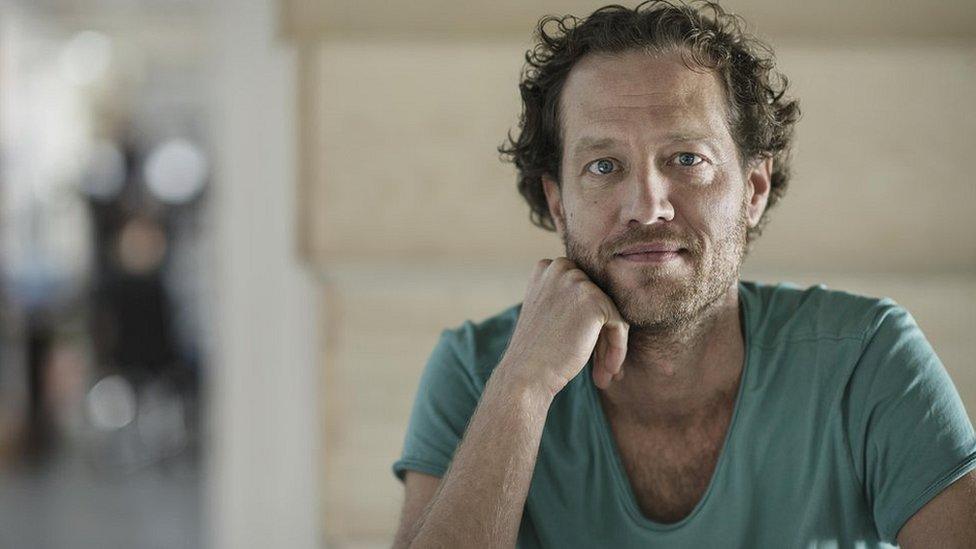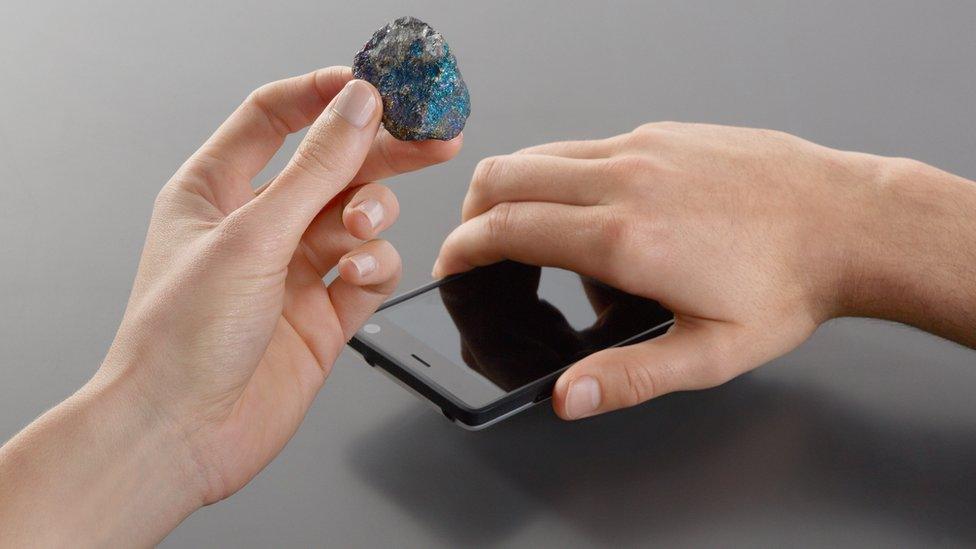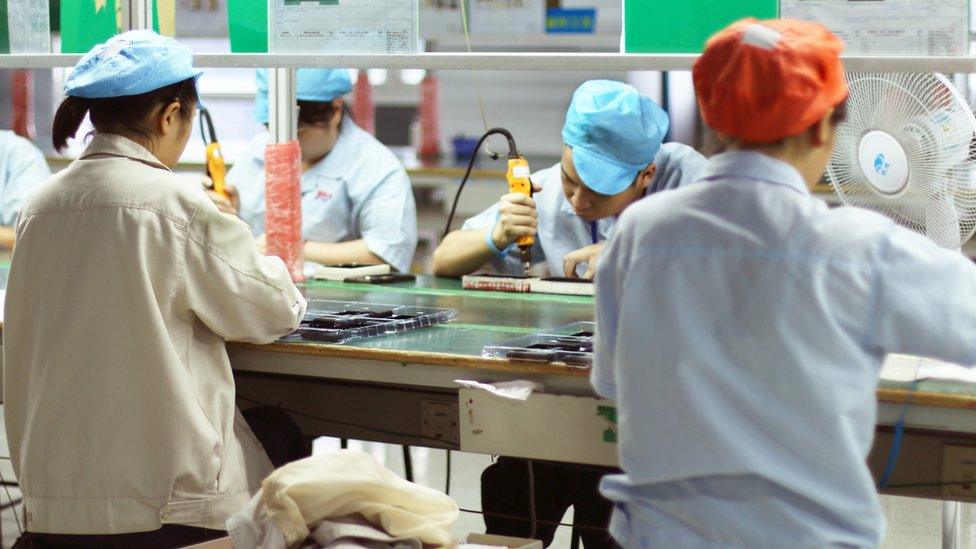Can an ethical smartphone change the world?
- Published
Why one company is trying to make a smart-phone by using only components from sources chosen for "ethical" reasons.
Bas Van Abel is a man on a mission - to make sure we all know more about our mobile phones.
He's not talking about the apps or operating systems that make them so invaluable to us - he's more concerned about the material they're made from.
So he's created what he's calling "the world's first ethical smartphone".
A bold claim - so I went to see Bas at the company's headquarters in Amsterdam.
Recycled lamp-shades dangle from exposed beams, hammocks swing invitingly alongside giant flourishing pot plants; the desks have emptied as the employees congregate in the dining area for a communal lunch.
"We didn't start as a company," Bas tells me. "We started as a campaign. And the campaign question was how can we give visibility to the situation in eastern Congo."
He's talking about the Democratic Republic of Congo (DRC) - home to minerals and metals essential to the manufacture of mobile phones.
More than six countries and several militias have fought wars on the country's soil since 1998. Looters and rebels have battled over DRC's enormous mineral wealth - and used the spoils to fund their campaigns.

Bas and his colleagues pre-sold 25,000 handsets before a single device had been made
Millions have died in the turmoil, with the east of the country particularly badly affected.
"So what we said was, with my background as a designer, why don't we make a device, make a phone," he says.
The idea was to prove to customers and to multinational corporations, that it is possible to create phones that are ethical and sustainable.
Conflict-free
Bas and his colleagues launched Fairphone in 2013, running a crowdfunding campaign that was so successful it took even them by surprise.
They pre-sold 25,000 handsets before a single device rolled off the production line: people were buying into a concept.
"I was crying to my wife in bed, like how am I going to do this?" he says.
"I'd never made a phone before and all these thousands of people had put their faith in me, I was afraid I would let them down."
He needn't have worried. His company has now sold more than 82,000 phones.
The company's main focus is to make sure that it sources its materials from non-conflict mines.

The company sources its materials from non-conflict mines
Bas says he sent his employees to the DRC to see if they could source "conflict-free" minerals that would support local economies rather than the militias.
He didn't want to be like other companies and avoid troubled regions altogether.
Small-scale mining
One of the big problems dealing with the DRC is the small-scale informal mining common in the country.
"People are just digging this stuff out of the ground and selling it to intermediary buying organisations," says Bady Balde from the Extractive Industry Transparency Initiative pressure group.
There are some 1.8 million people carrying out small scale mining in the DRC, he estimates.
"It's the informality and lack of structure that's the problem. The middle men buying the minerals have two choices.
"They can either declare it and pay taxes or they can smuggle it out. Sometimes they have to pay bribes to rebels to get it out."
All of this adds to the difficulty of tracing the origins of the elements going into mobiles.
Even Fairphone admits it has only managed to completely phase out two of the four conflict minerals used in phones.
But despite these difficulties the company is aiming to sell more phones than ever.
It hopes to ship 140,000 devices next year - though that still makes it a tiny player in the global market. For instance, Apple sold 13 million iPhone 6s in its first weekend alone.

Fairphone makes its phones in China
The newest version of the phone costs €525 (£380) but isn't as sleek as the new Apple iPhone and nor does it have as many specs as the latest Samsung Galaxy S. But Fairphone hopes it has a real design advantage - its modular design.
This means you can take it apart and fix it yourself. The proud CEO delights in dropping his phone onto the office floor to prove the point
"We tested it by making it fall from a Dutch person's ear height," he quips - and shows us how he can put it back together in minutes.
'There's a market'
Bas describes himself as a hippy with a business plan.
"The mechanism we use to change things is a commercial model. By being part of the economic system and a market mechanism we are able to actually put idealist values into the core of what moves the world."
He's not deterred by the company's tiny market share.
"We're not in it to become the biggest phone company in the world. But by doing what we do, we show that there's a market, we grow the demand.
"And if the demand grows, the market will follow. That's the way the world works."
Bas shares an anecdote about a visit from a representative from one of the world's most successful brands.
"She came into my office and slammed the Fairphone down on my desk, 'I've been trying to convince my company to do this for years, and now you just turn up and make it'."
They are unlikely to stop with the phone